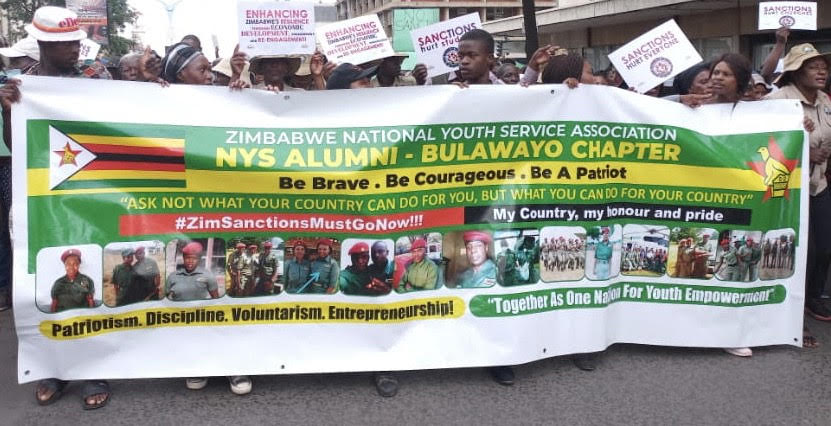In direct opposition to claims made by Zimbabwean and regional governments that sanctions have hampered the country’s socioeconomic transformation and economic development, the United Kingdom (UK) maintains that sanctions do not harm ordinary citizens because they are targeted at specific individuals.
This is in light of the Southern African Development Community’s (SADC) declaration of October 25, as Anti-Sanctions Day, on which SADC countries joined Zimbabwe in protest of the sanctions imposed on the county by the United States and its western allies, the UK and European Union.
To bolster its case, the Zimbabwean government has organised anti-sanctions protests across the country since 2019.
However, the West claims that sanctions have been imposed on individuals and businesses and have had little effect on the economy.
“To be absolutely clear, the UK has targeted sanctions on five Zimbabwean officials and one entity for human rights violations and serious corruption. The five individuals are Owen Ncube, Isaac Moyo, Godwin Matanga Anselem Sanyatwe and Kudakwashe Tagwirei, said the UK in a statement via its embassy in Harare.
“The entity is the Zimbabwe Defence Industries These measures do not affect trade or economic development,”
The UK embassy stated that trade between the UK and Zimbabwe reached $175 million last year and that they were “working hard to increase this.”
“The UK also provides considerable development assistance to education and health care in Zimbabwe – US$114 million this year,” said the embassy noting it was assistance in support of Zimbabwe’s own National Development Strategy
“We want to see Zimbabwe succeed, anything to suggest that the UK wants to harm Zimbabwe or ordinary Zimbabweans is simply false.”
In Bulawayo, residents carrying signs advocating for the removal of the sanctions marched along 10th Avenue outside the Mhlahlandlela Government Complex.
The demonstrators proceeded along Fife Street and headed to the Joshua Nkomo Statue, where they turned to 13th Avenue, going to their final destination at National Railways of Zimbabwe station where speeches were made.
At the United Nations General Assembly held in September in New York, African leaders pushed for an end to a two-decade-long Western embargo against Zimbabwe, arguing the sanctions are hurting ordinary people and the region.
When African Union (AU) leader and Senegalese President Macky Sall delivered his presentation at the UNGA 77th session, he urged sanctions should be lifted immediately to allow Zimbabwe to reach its full potential.
South African President Cyril Ramaphosa and Foreign Affairs Minister Naledi Pandor both criticised Zimbabwe’s sanctions, claiming they were having a negative impact on their country.

